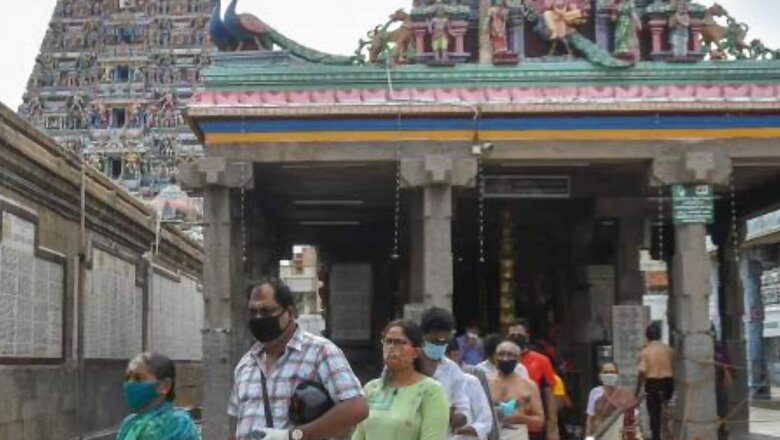
views
The Madras High Court in Madurai recently observed that temples have played a huge role in developing society and civilisation, and their traditional functioning should be of paramount consideration in their preservation.
Authoring the judgment, Justice R. Mahadevan on behalf of Justice Sathya Narayana Prasad and himself stated the existence of temples is interwoven with the co-existence of various activities performed inside it such as recital of hymns, dance, drama and debates, and waning of one activity will impact the other and eventually the temples.
However, the court upheld the decision of the Joint Commissioner/ Executive Officer of the Arulmighu Subramania Swami Temple at Tiruchendur, Tuticorin District to not allow devotees to stay in the outer ‘praharam’ of the temple during the Kanda Shasti festival this year.
Normally, during the six-day-long annual Kanda Shasti festival, which falls on the sixth day of the Tamil Month of Aippasi in October and November, the devotees fast, sing ‘kanda shasti kavasam’ and perform religious activities in the temple without going to their home.
At such times, the devotees are normally permitted to stay in the outer ‘praharam’ of the temple viz., first ‘praharam’ (precinct) from the entry of the temple premises. This has been the practice in the temple for quite a long time.
However, the court opined that the decision of the Joint Commissioner/ Executive Officer taken this year was justified as it had been done in order to avoid any inconvenience to the devotees only.
In the judgment which was reserved on November 22 and was delivered last week, Justice R. Mahadevan said as per Article 25 of the Constitution, all persons are entitled to freely profess, practice and propagate religion, however, such freedom to act and practice can be subject to regulations, inside the premises of the temple.
He stressed that the Agamas prescribe the rules regarding the rituals to be followed in the worship services at the temple but the temple authorities are responsible to ensure the safety and security of the devotees, besides maintaining the decorum and sanctity of the temple.
He also took note of the submission made by the Joint Commissioner that major development work at the temple is in progress and therefore, in order to avoid any inconvenience to the devotees, he did not permit anyone to stay inside the temple during this year’s festival, and instead temporary structures with basic amenities were provided outside the temple.
Therefore, referring to various Rules under the Tamil Nadu Temple Entry Authorization Act, 1947 and Section 23 of the HR&CE Act, which enable the temple administration to take decisions pertaining to the decorum and sanctity of the temple as well as the safety and security of the devotees, court upheld the decision of the Joint Commissioner.
Disposing of the Public Interest Litigation, the court ordered the Joint Commissioner/ Executive Officer of the temple to not permit anyone to stay inside the premises of the temple during festive and any other occasions.
Read all the Latest India News here


















Comments
0 comment